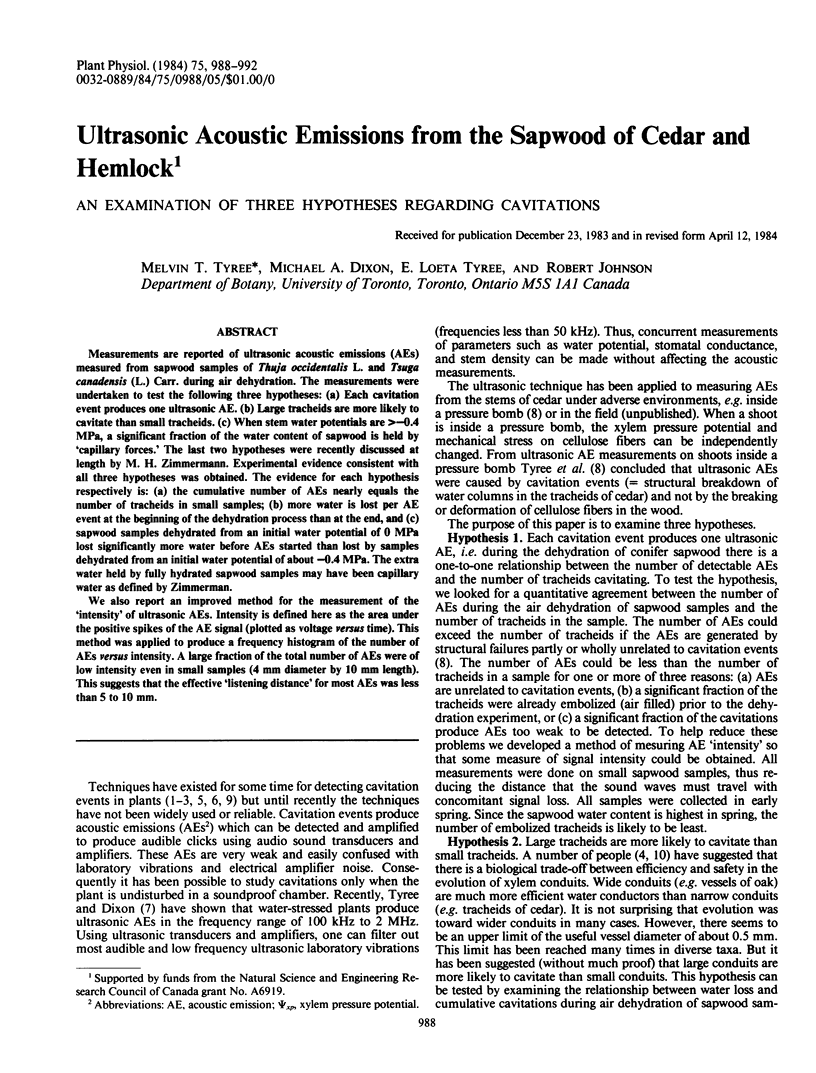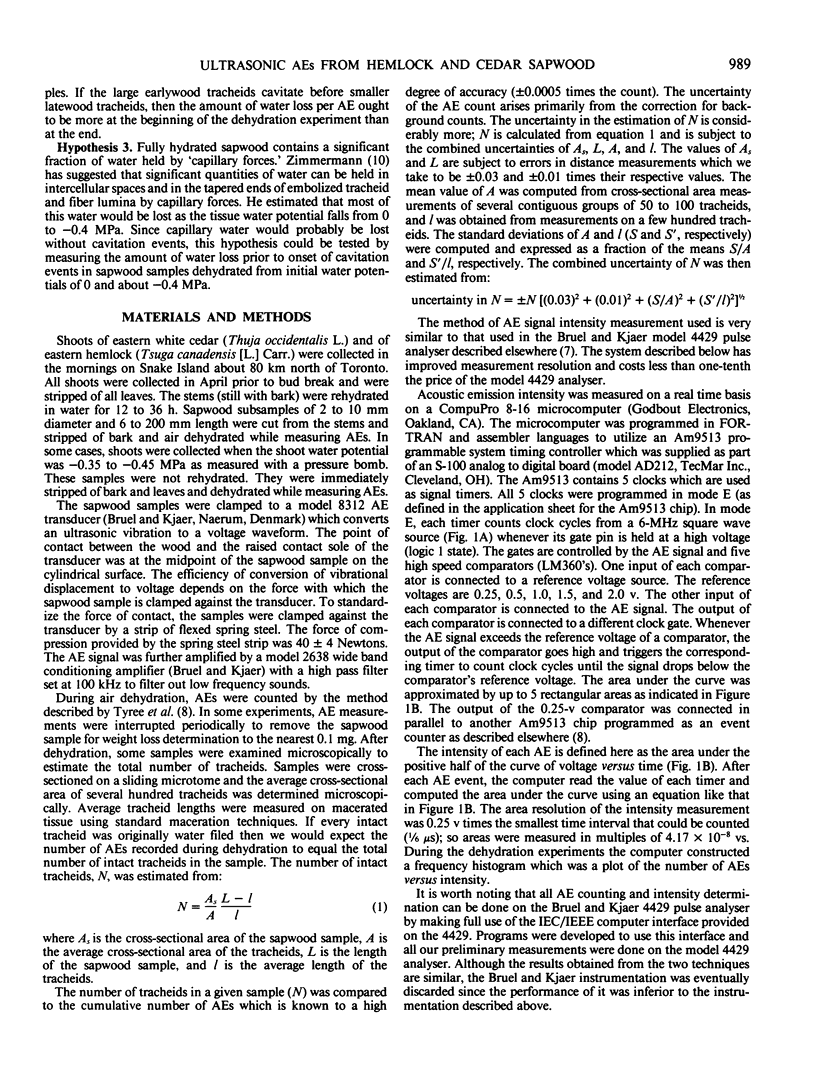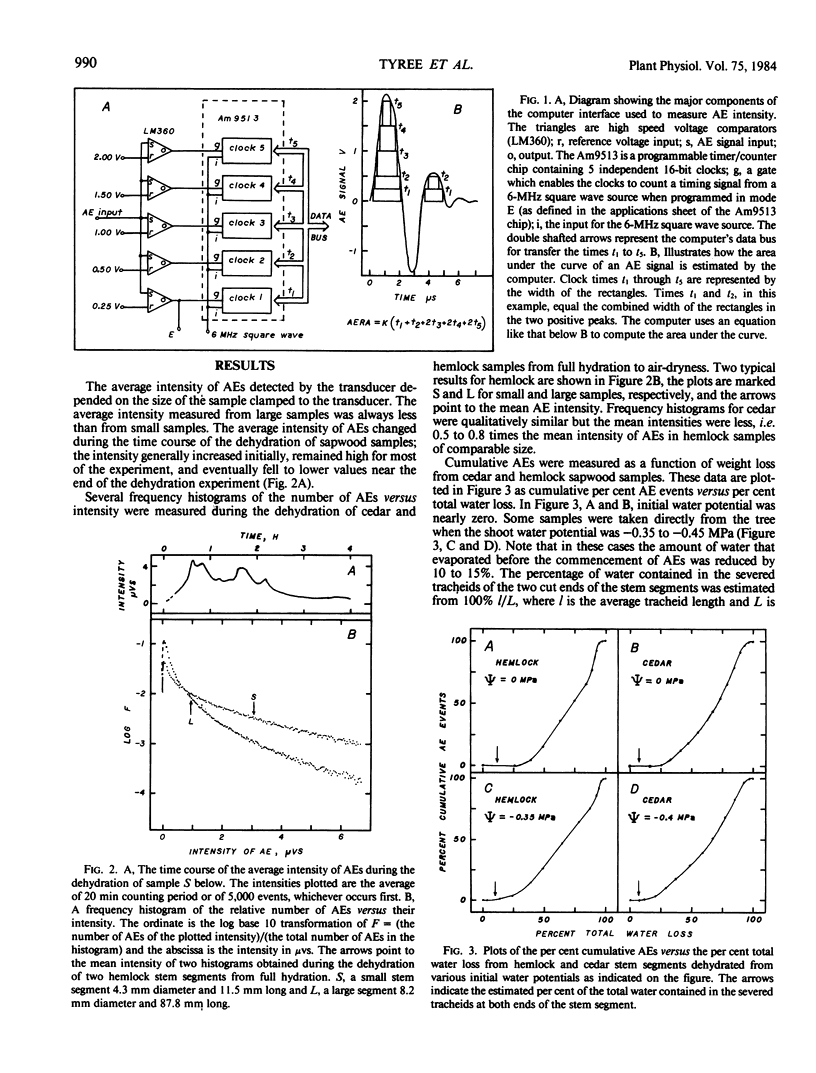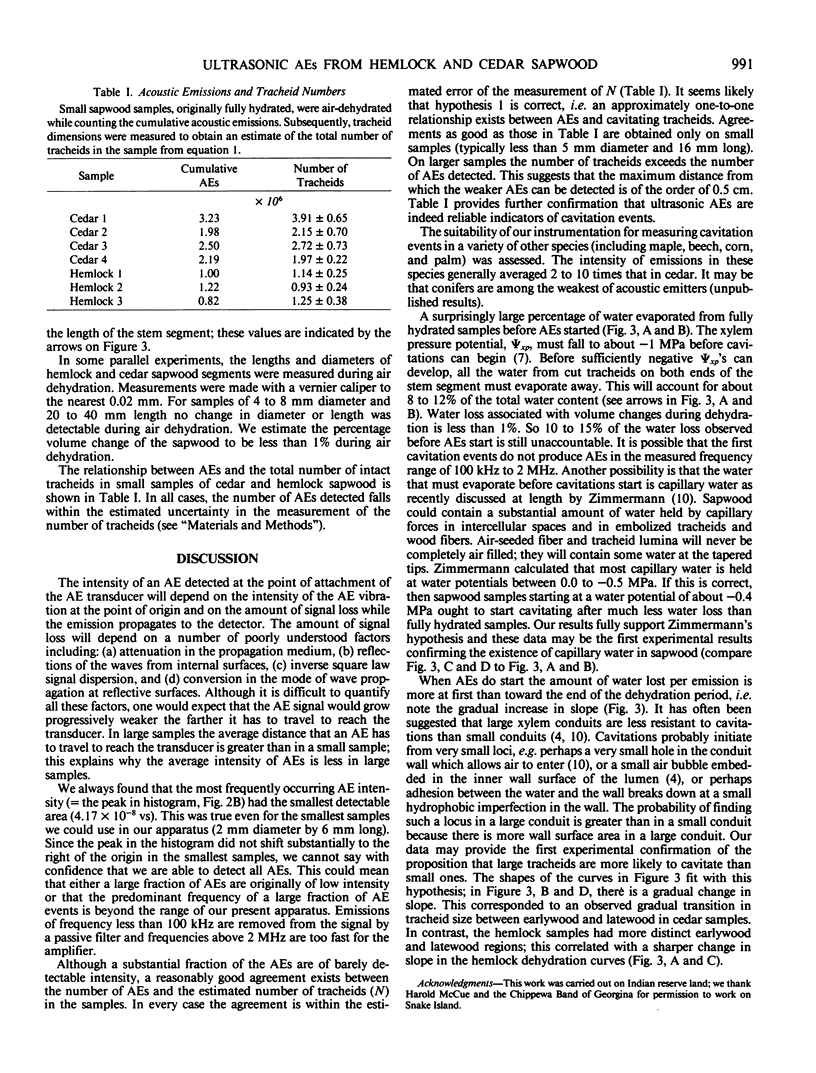Abstract
Measurements are reported of ultrasonic acoustic emissions (AEs) measured from sapwood samples of Thuja occidentalis L. and Tsuga canadensis (L.) Carr. during air dehydration. The measurements were undertaken to test the following three hypotheses: (a) Each cavitation event produces one ultrasonic AE. (b) Large tracheids are more likely to cavitate than small tracheids. (c) When stem water potentials are >−0.4 MPa, a significant fraction of the water content of sapwood is held by `capillary forces.' The last two hypotheses were recently discussed at length by M. H. Zimmermann. Experimental evidence consistent with all three hypotheses was obtained. The evidence for each hypothesis respectively is: (a) the cumulative number of AEs nearly equals the number of tracheids in small samples; (b) more water is lost per AE event at the beginning of the dehydration process than at the end, and (c) sapwood samples dehydrated from an initial water potential of 0 MPa lost significantly more water before AEs started than lost by samples dehydrated from an initial water potential of about −0.4 MPa. The extra water held by fully hydrated sapwood samples may have been capillary water as defined by Zimmerman.
We also report an improved method for the measurement of the `intensity' of ultrasonic AEs. Intensity is defined here as the area under the positive spikes of the AE signal (plotted as voltage versus time). This method was applied to produce a frequency histogram of the number of AEs versus intensity. A large fraction of the total number of AEs were of low intensity even in small samples (4 mm diameter by 10 mm length). This suggests that the effective `listening distance' for most AEs was less than 5 to 10 mm.
Full text
PDF




Selected References
These references are in PubMed. This may not be the complete list of references from this article.
- Tyree M. T., Dixon M. A. Cavitation Events in Thuja occidentalis L.? : Utrasonic Acoustic Emissions from the Sapwood Can Be Measured. Plant Physiol. 1983 Aug;72(4):1094–1099. doi: 10.1104/pp.72.4.1094. [DOI] [PMC free article] [PubMed] [Google Scholar]
- Tyree M. T., Dixon M. A., Thompson R. G. Ultrasonic Acoustic Emissions from the Sapwood of Thuja occidentalis Measured inside a Pressure Bomb. Plant Physiol. 1984 Apr;74(4):1046–1049. doi: 10.1104/pp.74.4.1046. [DOI] [PMC free article] [PubMed] [Google Scholar]


